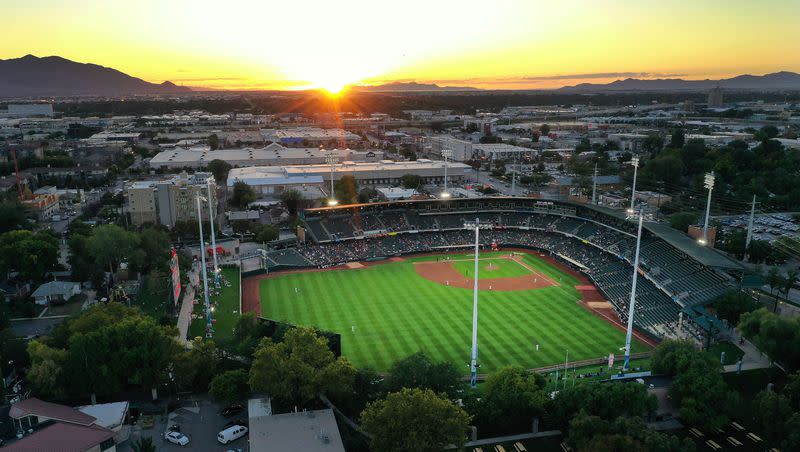3 takeaways from ESPN’s update on MLB expansion

With last week’s news of the proposed $3.5 billion ballpark district on Salt Lake City’s west side, it’s clear that Utah is serious about its quest to land a Major League Baseball team.
But how serious is MLB about doing business with Utah?
ESPN baseball insider Jeff Passan dove into the league’s potential addition of two new franchises in an in-depth report Tuesday, and Salt Lake City was one of the piece’s prominent players.
“The inevitability is real,” Passan wrote. “Expansion is coming to Major League Baseball. In what form, in what cities, in what year — all of those questions will be answered in time. It’s destiny.”
Here are three major takeaways from Passan’s story.
Salt Lake City is ‘positioned ... to be at the front of the line’ for MLB expansion
Despite being the most recent entry in the expansion pool, Salt Lake City has quickly risen to become one the favorites within MLB circles to house a new team, according to Passan.
In fact, Utah’s state capital has already passed Portland’s decades-long effort as the most enticing of all potential western expansion destinations, multiple ownership-level sources told Passan.
Related
Although Salt Lake would have the smallest metropolitan area among MLB markets, Passan wrote that the city “has made up for its lack of size with the strength of its plan,” citing Big League Utah’s stadium district proposal released last week.
One anonymous owner told Passan that Utah’s history of strong attendance numbers for both the Utah Jazz and Real Salt Lake should resolve any concerns about the state’s questionable market size.
Big League Utah couldn’t be in a better position than it is now, Passan wrote, noting that group officials have even been summoned to mingle with different MLB organizations during spring training for an inside look at what franchise operations would entail — an invitation “that’s not extended blithely.”
The Oakland A’s are still flirting with a temporary stay in Utah
One of Salt Lake’s greatest advantages over its expansion competitors? The chance to host an MLB franchise for a trial run of sorts to determine if the league could truly enjoy a long-term future in the state.
With the Oakland Athletics soon to be leaseless in the Bay Area and unable to move to Las Vegas until 2028 — if the city even wants them — the prospect of temporarily relocating to Salt Lake County for the 2025-27 seasons has been entertained as a possible solution.
The Larry H. Miller company has been in “regular contact” with the A’s, even hosting team officials in January to tour the Salt Lake Bees minor league ballpark site currently under construction in Daybreak. The new stadium is set to be completed in spring 2025 — just in time for Oakland to move right in, if need be.
Related
While the new Bees ballpark was originally intended to hold 7,500 seats, the Miller company is prepared to expand to between 10,000-12,000 seats to accommodate Major League action.
According to Passan, the A’s are seriously considering a stay in Salt Lake. He wrote that “the prospect of selling out 11,000 or so seats per game appeals enough to owner John Fisher that (relocation) talks continue,” even with a possible annual loss of $70 million in television revenue as a result of the move.
Despite all the buzz, expansion is still ‘far off’
If the A’s don’t arrive in Utah next spring, it may be a while before an MLB team winds up in the state.
Expansion is inevitable, to be sure, but definitely not imminent, according to Passan, who wrote that adding two new MLB teams “is unlikely to happen until the early 2030s,” as the league has a number of bigger fish to fry before then.
The fall of regional sports networks has created a crisis for MLB to deal with. The league also needs to figure out if the A’s will actually get to Las Vegas and if the Tampa Bay Rays can get a new stadium agreement. Additionally, a new collective bargaining agreement will need to be drafted before 2026 — one that would certainly factor in expansion plans.
“(Expansion) hasn’t been much of a topic of conversation,” one anonymous MLB owner told Passan. “Everybody knows what’s going to happen eventually, but it’s so far off that people just haven’t focused on it.”
When it does happen, perhaps it will be on Salt Lake City’s west side.

